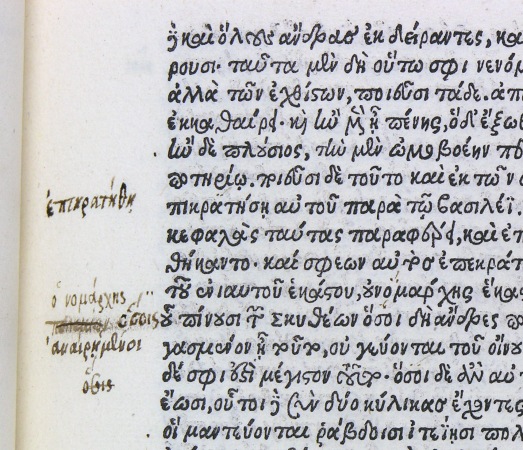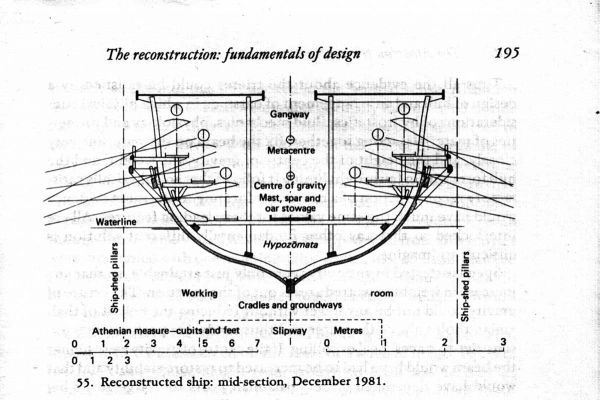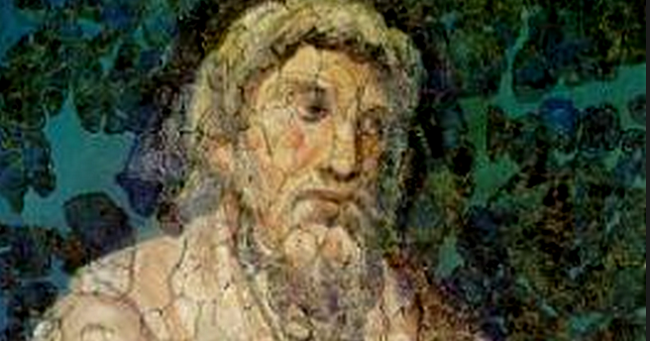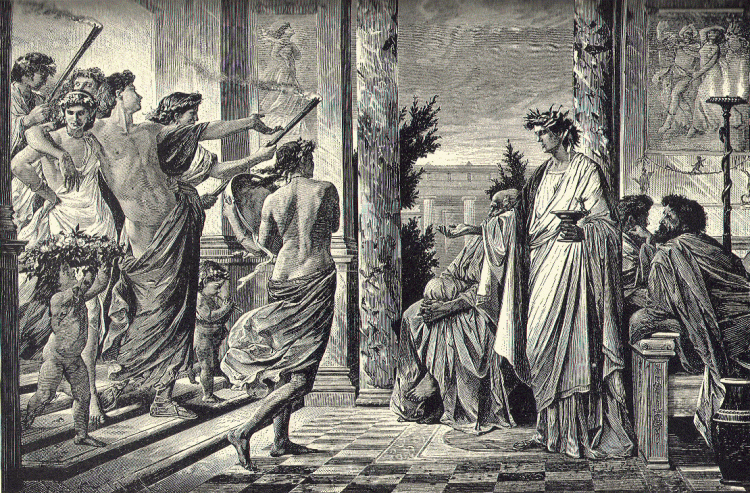
What are we to make of the end of the Histories? Is it an accident? Did he intend to conclude with the Sestos siege and the story about Protesilaos? Did he simply die before he could finish his narrative? Why does it appear as it is? We have certain expectations of a historian – that he will begin and end his work in a certain way, that themes will underlie it, that the themes will be emphasized, and that the ending will restate those themes in some dramatic or at least memorable, emotive way. Herodotus meets some of these expectations, but not the last. The end of the story seems to precede the end of the text; it is though Herodotus stuck in a few unrelated appendices and forgot to label them as such.
Perhaps the largest concluding portion comes in Herodotus’s account of the Plataea campaign, which includes several of what Hayden White refers to as “terminating motifs.”[1] Three episodes stand out in particular, all of which summarize some main theme of Herodotus: in 9.76, Pausanias returns a Persian courtesan to her Greek family; in 9.79, he explains why, unlike the Persians, the Greeks do not humiliate their dead enemies; and in 9.82, he remarks at the vast difference between a sparse Greek dinner and a gluttonous Persian one. These motifs all serve to bring the Histories to a thematic resolution, but there are still several episodes left for Herodotus to relate.
The last major battle, and the last episode to which Herodotus appends one of his characteristic closing statements[2] (“Thus indeed for the second time Ionia revolted from the Persians,” 9.104), is the battle of Mycale. But again, the Histories do not end there – there are for more brief episodes to be accounted for, none of them containing the same sort of thematic or formal closure that a reader would expect from a great writer. Herodotus does not give us one. He drops off his narrative with an ambiguous, and hardly satisfying, epigram about Persian slavery.
The question remains – why did Herodotus choose to end his work in this way? It couldn’t be due to incompetence or lack of imagination; we see in other places that Herodotus was perfectly capable of stirring up a rousing rhetorical conclusion to his discussion of a certain topic. Many eminent scholars – Wilamowitz, Jacoby, and Pohlenz, to name a few – have decided that the end which has come down to us is simply wrong – a sort of corruption of the text, or a failure on Herodotus’s part to carry through the ends he intended to achieve. Wilamowitz and Jacoby thought that Herodotus had meant to end his history with the capture of Sestos; however he had really intended to end his Histories, what was surely known was that “he could not have done so with the story of the pickled hero Protesilaos and with an anecdote from the time of Cyrus.”[3]
More recently, however, scholars have begun to take the ending for what it is, and to study it more carefully as though Herodotus did indeed intend to end with it. For John Moles, the thrust of the enigmatic ending is that the Athenians must be warned against the perils of empire. The major themes are rehearsed and brought to mind for the reader: we are reminded that strong people come from harsh lands and weak people from lush ones, that liberty is a treasure, that self-restraint is preferable to opulence, and that empires expand at the risk of losing their hard national character. The final anecdote, as well, serves to hammer the imperial point home – the Persians chose empire and ended with slavery.
Dewald goes further: the expectations we have about historiography, she says, are largely 18th– and 19th-century conventions. We write within the tradition that produces those conventions, so we have inherited them. Herodotus, however, did not write within a tradition with much sense of prose historiography at all; the Greek tradition, and particularly the Homeric tradition Herodotus sought to imitate, was one rooted in oral, rather than written, transmission. Oral narratives are not as formally cohesive – or not in the same way – as written ones.
Rather, oral narratives rely on other forms, such as repetition, clear signposting, and others. Herodotus exhibits all of these qualities and more. Furthermore, he continuously asserts his reliance on oral narratives in the construction of his work; he is not reading other writers so much as he is listening to what others tell him. With this background in mind, it becomes much easier to envision Herodotus’s ending as intentional; his idea of a good historical barnstormer was simply different from ours. He was capable of winding up as good a conclusion as anyone, but he wrote in a context that saw no formal need for it.
In Boedeker’s view, the episode with Protesilaos, the “pickled hero,” is the most important feature of Herodotus’s closing. The vengeance which he exacts upon Artayktes is symbolic; from it we can see the theme of intrusion upon territory not one’s own, and the price which is paid by those who dare to enter. Herodotus makes the parallel even more obvious, Boedeker thinks: Artayktes is killed at the very place that the Persians used to enter Europe. The two stories are thus linked by metonymy: each invader is repelled from the lands he has tried to enter.
Protesilaos, furthermore, is far from the only example of this theme, and the actors in his episode are not merely mortal – it is Artaykes who declares that the punishment that is visited upon him is “from the god” (9.120). The theme, then, is one of divine retribution. It occurs many times throughout the Histories; the gods favor those whose lands have been invaded. Before Marathon, the Greeks camp in a temple of Heracles and are then victorious. They do the same before they fight the Persians at Sounion with similar results.
All this is most clearly present, Boedeker argues, in the insignificant parts of the Histories such as the end precisely because those parts are insignificant in themselves and are filled with minor characters. Herodotus dares not force his major characters into the procrustean bed of fate – his great characters and great movements must be presented as they are, while the minor men and events which surround them explicitly act out the great themes of the work.
The special significance of Protesilaos, for Boedeker, is that he is the last example of this method at work. In the execution of Artaykes we find the final Persian to be killed in the Persian War, because he had trespassed on the property of an ancient Greek hero: the first Greek killed in the Trojan War. All of this, again, occurs at the very spot where the Persians first invaded the Greek homeland in the Persian Wars.
For my part, I am inclined to take both sides. The case for Protesilaos as a metonym for Greece, and Artaykes for Persia, seems to me very strong, and the themes in the episode are clearly important in the self-understanding of the Greek audience Herodotus wrote for. The following episode, with Cyrus and the Persian slavery, seems also to fit a nice motif mold – Herodotus warning the Athenians that their imperial delusions will bring their city to naught.
I am resistant to the idea that Herodotus explicitly put all these literary devices in, however, specifically in the case of Croesus, whose role depends heavily on parallels with the first book. I do not think that the first book and the last books were written at the same time or with much reference to each other, and it seems difficult to me to prove that Herodotus was a strong-minded thematic writer here when the scope spans across the entire breadth of the Histories. Further, it just doesn’t seem like Herodotus to end in such a queer enigmatic way; the texts do read as though they were note-sheets or manuscripts appended to the text by some hasty literary executor, or simply happened to be at the bottom of the pile of papers Herodotus was writing when he died. The oral narrative suggestion is fascinating and seems very probably correct, but I am still hesitant to think that some more formal ending never occurred to Herodotus. He may have written within a predominantly oral culture, but still he wrote. It is easy to make sense of it all if one squints hard enough, but I find it hard not to doubt that this was really the way Herodotus designed it to be.
[1] Dewald, p. 65.
[2] These sorts of summary statements are found at the end of many of Herodotus’s digressions – “This is the way it was concerning the rule of Croesus and the first conquest of Ionia” (1.92), “The Lydians, then, were enslaved by the Persians” (1.94), “Thus was Babylon captured for the first time” (1.191), etc. Each of these statements gives the reader, if not full closure, at least a sense that Herodotus has finished saying what he meant to say on the topic. In the case of Mycale, we would be content to end the Histories on that note, if it did indeed end there.
[3] Dewald, p.62.


 Nicias and Alcibiades – the tale is a tragi-comedy. Nicias, the cautious commander, wrought peace with Sparta, which Alcibiades, the Spartan proxenos, undid. Nicias opposed the campaign to Sicily, yet led it; Alcibiades propounded it and was recalled. Alcibiades, the rash, eager young man, proposed the more modest course for the expedition; Nicias, the judicious fogey, demanded a fleet so immense that its defeat became Athens’ destruction.
Nicias and Alcibiades – the tale is a tragi-comedy. Nicias, the cautious commander, wrought peace with Sparta, which Alcibiades, the Spartan proxenos, undid. Nicias opposed the campaign to Sicily, yet led it; Alcibiades propounded it and was recalled. Alcibiades, the rash, eager young man, proposed the more modest course for the expedition; Nicias, the judicious fogey, demanded a fleet so immense that its defeat became Athens’ destruction.